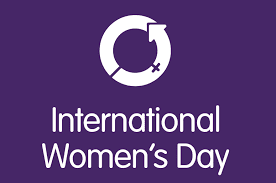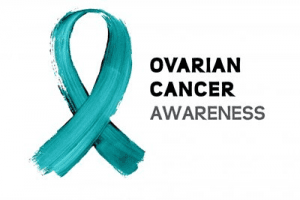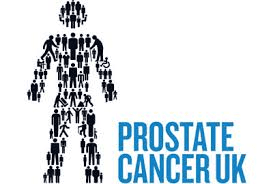Throughout 2021, we have made a pledge to share our education and experiences with our clients and colleagues, to ensure inclusivity across the board. Each month we will be releasing communications in line with national and international awareness campaigns. So far we have explored Women’s Health in our January Awareness blog and diversity in Cancer, Heart Disease and Scleroderma in our February Awareness blog. In the UK, March marks International Women’s Day on 8th as well as Prostate Cancer and Ovarian Cancer Awareness month. In this month’s blog we will be exploring diversity and awareness in these areas. International Women’s Day is on 8th March and is a chance to recognise and celebrate the incredible contributions of women, culturally, socially and politically. It is also a chance to consider how much further we have to go. With the denial of women and girls’ rights being one of the biggest causes of poverty worldwide, International Women’s Day provides a chance for people to come together to call for advocacy, change and progress. Throughout the world, women and girls continue to face huge injustices simply because of their gender. Over the years, women have been excluded from pharmaceutical research for many reasons. Gaps in consideration of sex and gender at each stage of research means women’s representation in clinical trials remains low. Insufficient representation, analysis, and reporting of outcomes in women at different stages of their lives also persist. For example pregnant and lactating women continue to be excluded from many trials, meaning Doctors and Physicians come across difficulties when advising drug treatments for pregnant and breastfeeding women. Although recent regulatory changes have led to an improvement in the inclusion of women in phase III trials, meaningful inclusion of women and analyses of outcomes by sex remain absent or incomplete. A recent study for HIV pre-exposure prophylaxis in 2019 led to the approval of a specific drug which was released to the US market but only for men with male sex assigned at birth and transgender women. The exclusion of people assigned female sex in the trial was justified as difficulties in enrolment, resource limitations and equivocal expectations of reaching meaningful clinical outcomes. Read more about gender inequalities in pharmaceutical research here. Ovarian Cancer is one of the most common types of cancer in women. In the United States, it is the fifth leading cause of cancer death among women and in the UK, 7,400 women are diagnosed with ovarian cancer each year. However, when diagnosed early, 9 out of 10 women will survive. Ovarian cancer is cancer arising from the cells in and around the ovary and fallopian tubes. There are many different types of ovarian tumours classified by the types of cells and tissue they originate from. Women most at risk are: Ovarian Cancer and Diversity According to the US National Cancer Institute, although white women are more likely to get ovarian cancer, Black women don’t survive as long with the disease. Socioeconomic factors and access to health care may play roles in this disparity, but it’s been difficult for researchers to know for sure, given the limited number of studies conducted in minority populations. Ensuring that cancer patients from different backgrounds are equally and adequately represented in research studies is paramount in delivering the highest quality care. By understanding how ovarian cancer differs in women of different races, scientists can eventually develop more individualised treatment options that will hopefully work more effectively in specific populations. Prostate cancer can develop when cells in the prostate start to grow in an uncontrolled way. Some prostate cancer grows too slowly to cause any problems or affect how long you live therefore many men with prostate cancer will never need any treatment. However some prostate cancer grows quickly and is more likely to spread. This is more likely to cause problems and needs treatment to stop it spreading. In the UK, about 1 in 8 men will get prostate cancer in their lifetime. Prostate cancer mainly affects men over 50, and your risk increases with age. The risk is even higher for black men and men with a family history of prostate cancer. Find out more about who is most at risk here. Prostate Cancer and Diversity Black men are more likely to get prostate cancer than other men. We don’t know why, but some theories state it might be linked to genes. In the UK, while about 1 in 8 men will get prostate cancer, about 1 in 4 black men will get prostate cancer in their lifetime. Despite the higher risk of prostate cancer for Black men of African Caribbean and West African origin there is poorer awareness of prostate cancer among this group than among white men. In a recent UK study only 37% of Black men had heard of prostate cancer compared to 64% of White men. Additionally the research found that only 15% of African Caribbean men knew that they had an increased risk of developing prostate cancer. This is hugely concerning as the men who are at greater risk of prostate cancer are less aware than white men, they should have equal if not higher levels of awareness. This suggests an inequality in levels of awareness and that messages about prostate cancer are not reaching this group. Read more about the inequalities of Prostate Cancer below: Equality, Diversity and Inclusion continues to be high on our agenda. We are working behind the scenes to push this forward. Keep your eyes peeled for more. Read our previous Awareness blog around Cancer, Heart Disease and Scleroderma here. Find out how we’re working with clients to ensure greater patient diversity in clinical trials.Ovarian Cancer Awareness Month | Prostate Cancer Awareness Month
Innovative Trials are passionate about ensuring our diverse population is adequately represented within medical research. Whether it is wanting to see more people from underrepresented communities choosing science as a career and pushing for greater patient diversity in clinical trials or focusing on what we are doing internally to celebrate and promote equality and diversity.
International Women’s Day
Did you know?

Ovarian Cancer
 The most common symptoms include:
The most common symptoms include:Prostate Cancer
Across the UK:

Most men with early prostate cancer don’t have any signs or symptoms. However, possible changes include:
